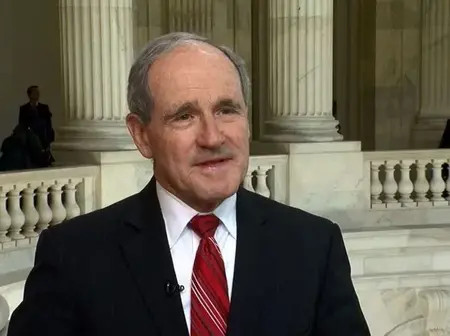Kenya’s Major Non-NATO Ally (MNNA) status is on thin ice as the US Senate has begun a probe into several issues, including human rights violations and links to terror groups.
The Major Non-NATO Ally (MNNA) designation is granted to countries that have strategic working relationships with the US Armed Forces but are not members of NATO.
The probe was initiated by Idaho Senator Jim Risch, who introduced an amendment to the National Defense Authorization Act (NDAA) for the Fiscal Year 2026, seeking a 90-day reassessment of Kenya’s MNNA status.
One of the major concerns is Kenya’s growing ties with China, one of the US’s strategic rivals—especially after President William Ruto’s visit to China in late April 2025, where over 20 bilateral agreements were signed, spanning infrastructure, trade, health, education, and digital technology.
During the visit, Ruto stated that “Kenya and China are co-architects of a new world order,” a remark that reportedly did not sit well with the US government.
On May 13, Senator Risch criticized President Ruto over Kenya’s increasingly close relationship with China, especially in the context of its MNNA status. “Relying on leaders who embrace Beijing so openly is an error. It’s time to reassess our relationship with Kenya and others who forge tight bonds with China,” Risch said.
Ruto, however, has defended the shift, stating that Kenya has looked East purely for trade reasons and market access.
“It’s partly why I have a bit of a problem with some of our friends, but it is what I must do for Kenya. It is in the best interest of Kenya that we get into this market. Some of our friends are complaining that we are doing too much trade with China,” Ruto said in Nairobi on August 6.
Senator Risch also raised concerns over whether Kenya had misused American security and intelligence assistance in ways that may undermine US interests, including the repression of civilians.
The proposed amendment includes: “An assessment of the use by the government of Kenya of US security assistance and intelligence support and sharing, including potential impacts on state and non-state-sponsored actions against civilians, to include abductions, torture, renditions, and violence against civilians.”
According to the Kenya National Commission on Human Rights, at least 128 people were killed during protests in 2024 and 2025, and nearly 100 were abducted, with some still missing. These incidents have damaged Ruto’s international image, with human rights groups accusing his administration of violating human rights in its handling of protests.
Moreover, the US has expressed concern over Kenya allegedly hosting individuals and organizations designated as terrorists. The Senate proposal calls for an assessment of Kenya as a “financial safe haven” for individuals affiliated with foreign terrorist organizations, including some based in South Sudan, Sudan, Uganda, and Somalia. Sudan’s Rapid Support Forces (RSF) and Somalia’s Al-Shabaab were specifically mentioned as having potential connections to key Kenyan government officials.
Sudan had previously condemned President Ruto for allegedly supporting the RSF after its commander, Mohamed Hamdan Dagalo, visited Nairobi and announced plans to establish a parallel government in Sudan in February 2025. This move raised serious concerns in the international community regarding Ruto’s diplomatic stance.
Democracy for Citizens Party (DCP) leader Rigathi Gachagua has welcomed the US probe and claimed he has evidence linking President Ruto to some of the groups in question.
“You cannot run away with it because I was your deputy; we have the evidence. I was there when all those meetings took place, and I have all the details. We are giving those details to the Americans, and we are right here in America. Ruto, you cannot run from this. The Americans have heard the cries of the Kenyan people,” Gachagua said while speaking in Olathe, Kansas City, US.
Kenya received the MNNA status on June 24, 2024, under the Biden Administration. This made Kenya the first Sub-Saharan African country to receive the designation, joining Egypt, Tunisia, and Morocco as the fourth African nation to be granted this status.
– By Anthony Mwangi

Leave a Reply